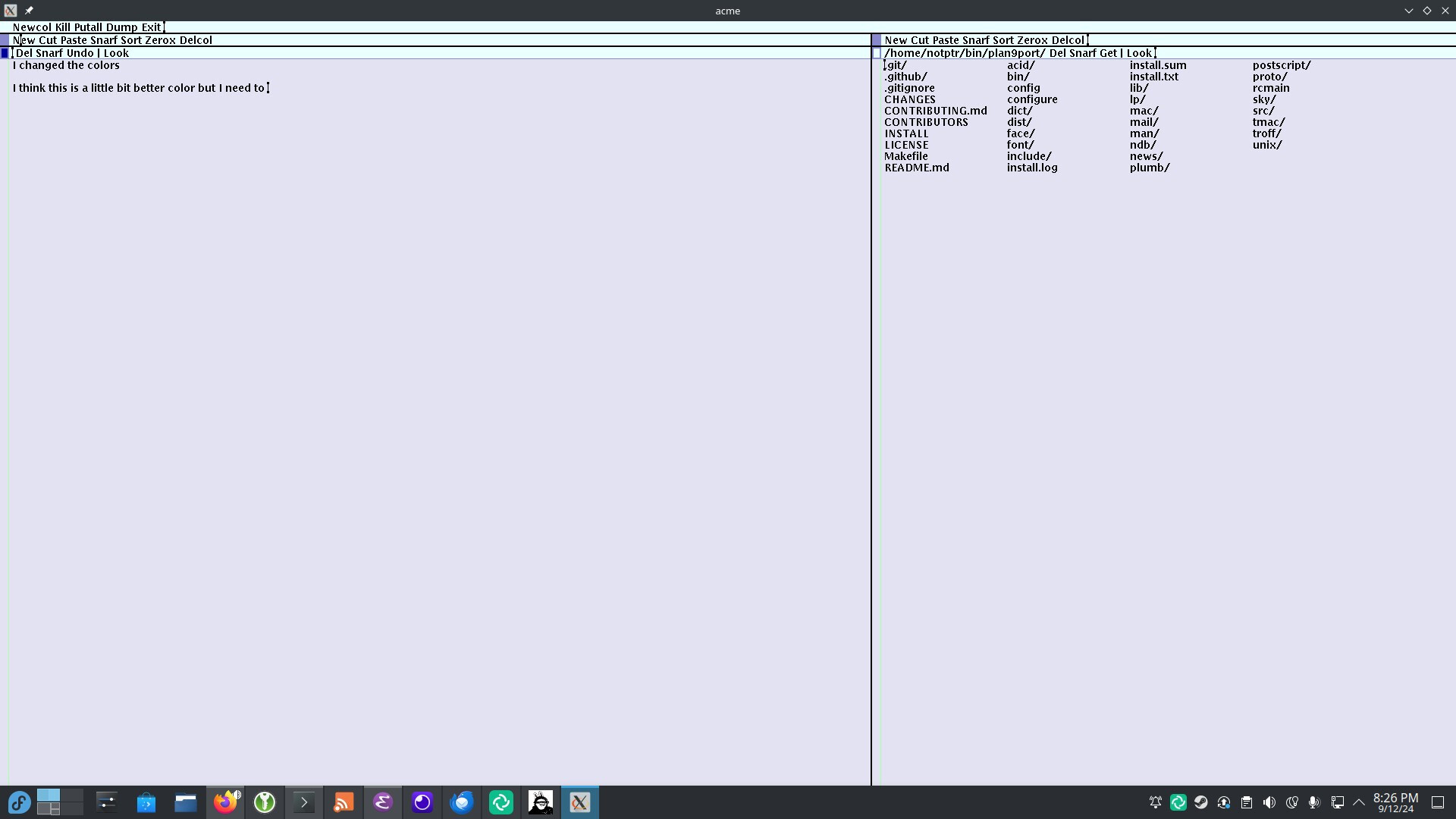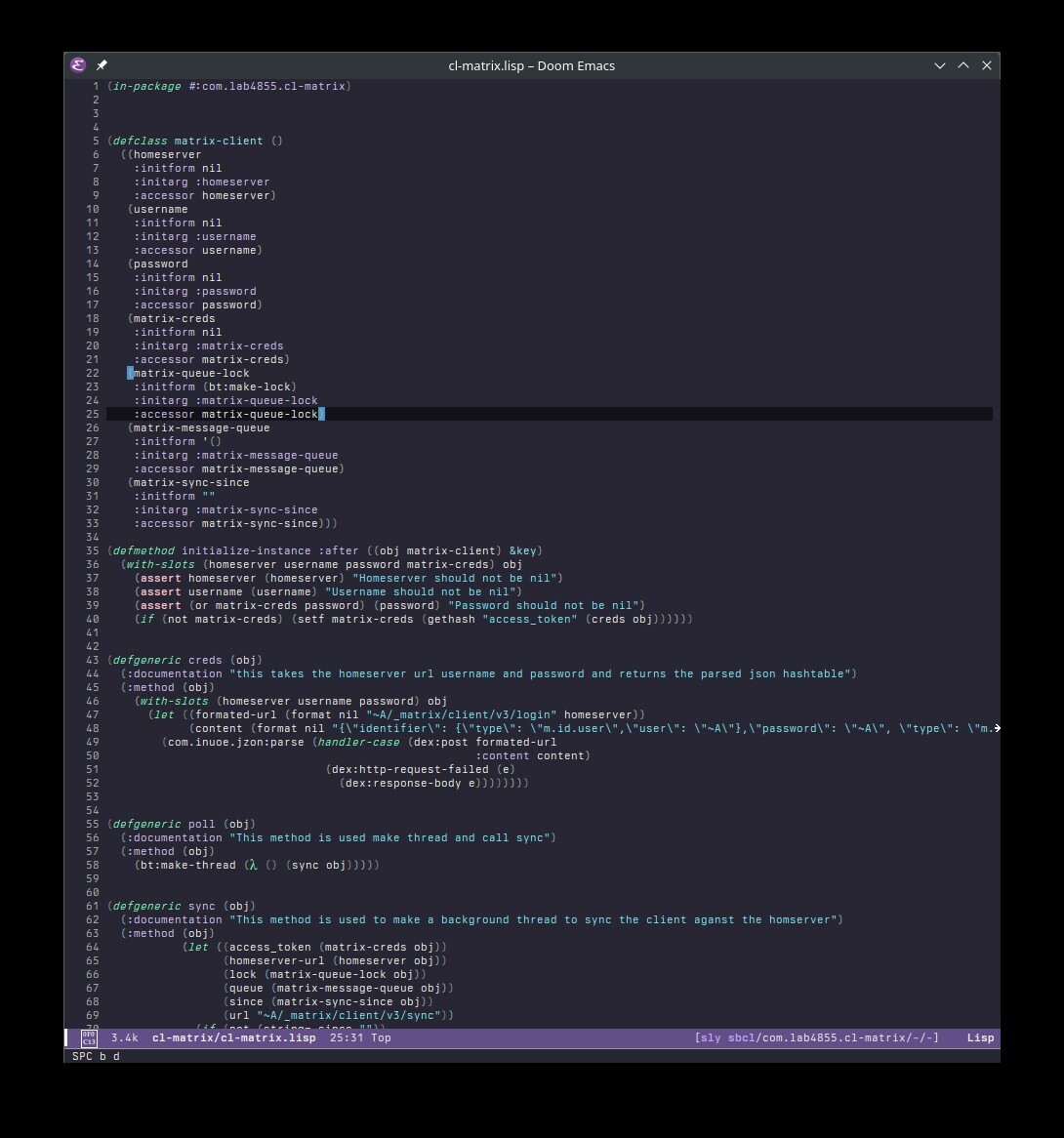The #LispMachine did away with the Endian problem just by being correct.
Ghosts 'n Goblins
🏢 Capcom
📅 1985
🖥 3DS, Amiga, Amstrad CPC, Android, Arcade, Atari ST, Commodore 16, Commodore 64, DOS, NES...

Ed now has 100 solved entries on RosettaCode, and most of them are mine 🥰 So yes, it’s possible to use antiquated editor and outdated regex format to solve quite a lot!
I found the person that solves tasks in ed in parallel to me! It’s https://rosettacode.org/wiki/User:Kennypete ! I’m not alone in my madness 😌
#AusPol #CFMEU #Protest #Unionism #Naarm #Gadigal #MaganDjin #Brisbane #Sydney #Melbourne #GreenLeft
Hands Off the CFMEU! Protest the union busting laws pushed through by Labor. Join Socialist Alliance in Magan-djin (Brisbane), Gadigal Country (Sydney) or Naarm (Melbourne) this Tuesday or Wednesday.

Trying to get acme to have similar colors as my emacs. I think to learn how allocimagemix works


i love how the internet has more or less decided that the answer to the question, "would you love me if i was a worm?"
is "yes".
love yer wormie baes ❤️🔥
thoughts / blep

Quite some years ago (2006-08), we brought the #OLPC AKA the 100$ laptop to Ethiopia as pilot. A surprising thing happened. The laptops were often without battery power in the morning. A thing that wasn’t anticipated. It had two reasons. One was the keyboard LED (it was removed in later series). It was used by the parents to have a light at home. The other was a bigger surprise. The parents used the mesh networking to discuss market prices for their produce. Fascinating. 1/8

I think I figured a possible implementation of a zero knowledge email server using open source software only

 Writing a PoC
Writing a PoC
An important program for CP/M users with wifi modems: QTERM.
Features:
• Capture of text files
• Send text files to remote
• Xmodem / Modem7 / Ymodem protocol transfer
• Kermit protocol transfer
• VT100 emulation
• Split screen mode to separate typed and received text
• Script mechanism for automatic dialing and automation of other operations
• Transfer of text to printer
• Full user area support
It's basically exactly what you'd want for connecting to a BBS or some other Telnet service. I suppose it could also be used to connect to a Unix machine over a serial port, if you wanted.
Ok, my article on porting the SBCL common #lisp implementation to the nintendo #switch is now live:
https://reader.tymoon.eu/article/437
Boosts would be much appreciated! It's been a lot of work to get this far.




 🇨🇦
🇨🇦
